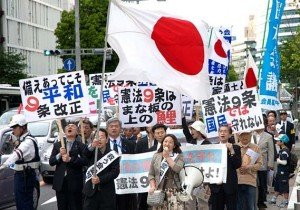(Published in the Huffington Post, Apr. 30, 2013, and The Truman Doctrine blog, Apr. 30, 2013)
The Obama Administration announced last week that it would prosecute Boston bomber Dzhokhar Tsarnaev in the Federal criminal justice system. This should have been unremarkable, but it came amidst a cacophony of voices demanding that Tzarnaev be classified and treated as an “enemy combatant.” There were calls to similarly classify the Christmas day bomber, the Times Square bomber, and several other terrorist suspects captured in the United States. Such claims have no legal validity, and are indeed dangerous.
The calls for “enemy combatant” status not only came from various so-called pundits on Fox News and the like, but also from more serious quarters. Senator Lindsey Graham criticized the administration, arguing that Tsarnaev should be classified as an “enemy combatant” under the law of armed conflict for the purposes of extracting intelligence.
Alberto Gonzales, former White House in the Bush administration stated in an interview last week that “nothing prevents the President from deciding: ‘This isn’t working, it’s not going the way we hoped it would go, so I’m pulling him out of the criminal justice system and I’m designating him an enemy combatant.'”


 Back in 1990, in the run-up to the Gulf War, I was a naval officer, and like most of the world, supported the need to use military force. As a student of history, I understood that force is sometimes necessary in the face of aggression.
Back in 1990, in the run-up to the Gulf War, I was a naval officer, and like most of the world, supported the need to use military force. As a student of history, I understood that force is sometimes necessary in the face of aggression.
